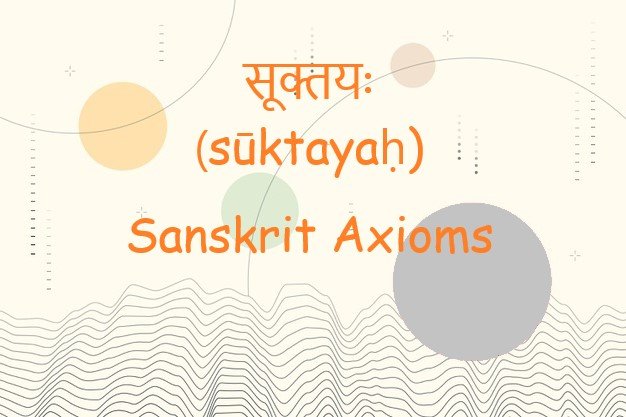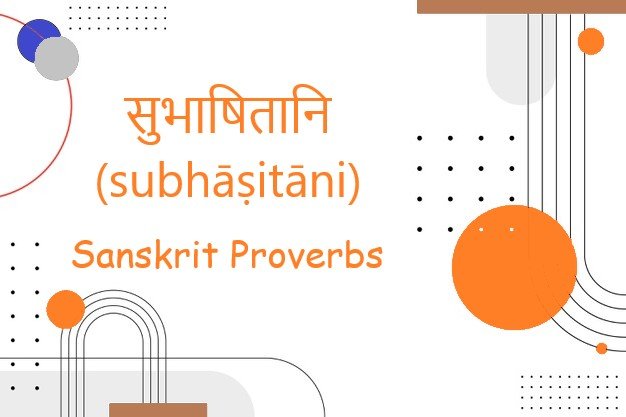Essay on Importance of Knowledge in Sanskrit
This post is an essay on Importance of Knowledge in Sanskrit.
ज्ञान/विद्या का महत्त्व पर निबंध.
English and Hindi translation is also given for better understanding.
This essay can be referenced by school students and Sanskrit learners.

Table of Contents
Video of Essay on Importance of Knowledge - 10 Lines
विद्यायाः महत्त्वम्।
पण्डितैः उक्तं, यत् विद्याधनं सर्वेषु धनेषु प्रधानम्। विद्यायाः विषये संस्कृते बहूनि सुभाषितानि रचितानि। प्रत्येकसुभाषिते विद्यायाः महत्त्वम् दत्तम्।
विद्या धनतुल्या अस्ति इति कथ्यते। परम् एतत् विद्याधनं साधारणधनवत् नास्ति। विद्याधनस्य व्ययेन तस्य क्षयः न, परन्तु तस्य वर्धनम् एव भवति। इदं विद्याधनं हर्तुं अपि न शक्यते।चौरेण वा राज्ञा वा तस्य हरणं न शक्यम्।अस्य विद्याधनस्य भारोऽपि न अनुभूयते। विद्याधनस्य भ्रातृषु विभाजनम् अपि न कर्तुं शक्यते। विद्या तु सत्यमेव सर्वधनप्रधानम्। प्रवासेषु विद्या मित्रम् इव भवति अस्ति।
विद्यायाः कारणात् मनुष्यस्य तेजः वर्धते। विद्या परमं भूषणम्। विद्यया एव मनुष्यस्य कार्यक्षमता वर्धते। सर्वेषु जीवेषु मनुष्यः विशेषः, यतः तस्य समीपे विद्या वर्तते। अतः विद्यविहीनः जनः पशुवत् एव अस्ति। ज्ञानेन मनुष्यः जगति कीर्तिवान् भवति। तस्य ज्ञानसम्पत्तेः कारणात् सः सर्वत्र सम्मानितः भवति।
विद्यायाः विषये, सत्यमेव उक्तम्-
‘विद्या परमं बलम्।’
सुखं प्राप्तुं विद्यार्जनम् अवश्यकम् अस्ति। अतः कथ्यते –
विद्या ददाति विनयं, विनयात् याति पात्रताम्।
पात्रत्वात् धनम् आप्नाेति, धनाद्धर्मं ततः सुखम्॥
vidyāyāḥ mahattvam।
paṇḍitaiḥ uktaṃ, yat vidyādhanaṃ sarveṣu dhaneṣu pradhānam। vidyāyāḥ viṣaye saṃskṛte bahūni subhāṣitāni racitāni। pratyekasubhāṣite vidyāyāḥ mahattvam dattam।
vidyā dhanatulyā asti iti kathyate। param etat vidyādhanaṃ sādhāraṇadhanavat nāsti। vidyādhanasya vyayena tasya kṣayaḥ na, parantu tasya vardhanam eva bhavati। idaṃ vidyādhanaṃ hartuṃ api na śakyate।caureṇa vā rājñā vā tasya haraṇaṃ na śakyam।asya vidyādhanasya bhāro’pi na anubhūyate। vidyādhanasya bhrātṛṣu vibhājanam api na kartuṃ śakyate। vidyā tu satyameva sarvadhanapradhānam। pravāseṣu vidyā mitram iva bhavati asti।
vidyāyāḥ kāraṇāt manuṣyasya tejaḥ vardhate। vidyā paramaṃ bhūṣaṇam। vidyayā eva manuṣyasya kāryakṣamatā vardhate। sarveṣu jīveṣu manuṣyaḥ viśeṣaḥ, yataḥ tasya samīpe vidyā vartate। ataḥ vidyavihīnaḥ janaḥ paśuvat eva asti। jñānena manuṣyaḥ jagati kīrtivān bhavati। tasya jñānasampatteḥ kāraṇāt saḥ sarvatra sammānitaḥ bhavati।
vidyāyāḥ viṣaye, satyameva uktam-
‘vidyā paramaṃ balam।’
sukhaṃ prāptuṃ vidyārjanam avaśyakam asti। ataḥ kathyate –
vidyā dadāti vinayaṃ, vinayāt yāti pātratām।
pātratvāt dhanam āpnāeti, dhanāddharmaṃ tataḥ sukham॥
Essay on Importance of Knowledge
It is said by scholars that the wealth of knowledge is the greatest of all. Many subhashitas have been composed in sanskrit in the praise of knowledge. The importance of knowledge is given in each of the subhashita.
It is said that knowledge is equal to wealth. But the wealth of knowledge is not similar to normal wealth. By distributing the wealth of knowledge, it does not reduce but it increases. This also, can not be taken away. It can not be stolen by robbers nor can it be taken away by the king in the form of taxes. It is also not a burden. It can not be distributed amongst the siblings as inheritance.
Knowledge is truly the greatest wealth of all. Knowledge is like a friend in one’s travels.
Knowledge increases a person’s radiance. Knowledge is the greatest ornament. Knowledge increases one’s capacity to do work. A human being is different from all other living beings, as he has the gift of knowledge. Therefore, a person without knowledge is considered similar to an animal. Knowledge makes a person gain fame in the world. A person is respected everywhere because of his / her knowledge.
It is truly said about knowledge that knowledge is the greatest strength.
Gaining knowledge is important in order to be happy. So it is said that –
Knowledge gives a person humility. From humility comes capability. With capability comes money. When money is used wisely, adhering to Dharma, one gets peace.
ज्ञान/विद्या का महत्त्व पर निबंध
विद्वानों ने कहा है कि विद्या का धन सबसे बड़ा है। विद्या की स्तुति में संस्कृत में अनेक सुभाषितों की रचना की गई है। प्रत्येक सुभाषित में विद्या का महत्व बताया गया है।
कहा जाता है कि विद्या धन के समान है। लेकिन विद्या का धन सामान्य धन के समान नहीं है। विद्या के धन को बांटने से घटता नहीं परन्तु बढ़ता है। यह छीना नहीं जा सकता। चोर से या राजा से उसका हरण नहीं किया जा सकता। इस विद्याधन का बोझ भी नहीं होता। विद्याधन का भाईयों में विभाजन भी नहीं कर सकते। विद्या वास्तव में सभी का सबसे बड़ा धन है। प्रवास में विद्या मित्र के समान होती है।
विद्या से व्यक्ति का तेज बढ़ता है। विद्या सबसे बड़ा आभूषण है। विद्या से ही व्यक्ति की कार्य करने की क्षमता बढ़ती है। मनुष्य अन्य सभी प्राणियों से भिन्न है, क्योंकि उसके पास विद्या का वरदान है। इसलिए विद्या विहीन व्यक्ति को पशु के समान माना जाता है। विद्या व्यक्ति को संसार में प्रसिद्धि दिलाती है। व्यक्ति अपने विद्या के कारण ही सर्वत्र आदर पाता है।
विद्या के बारे में सच में कहा गया है कि – विद्या सबसे बड़ी ताकत है।
सुख प्राप्त करने के लिए विद्या अर्जित करना आवश्यक है। कहा जाता है कि –
विद्या मनुष्य काे विनम्र बनाती है, विनम्रता से ही उस व्यक्ति काे याेग्यता मिलती है। याेग्यता से संपत्ति मिलती है संपत्ति से (संपत्ति का सदुपयाेग करने से) सुख मिलता है।

Savitribai Phule
Sanskrit Essay on Savitribai Phule, with translation …
Internet
Essay on Internet in Sanskrit, English, and …
Importance of Machines
Essay on Importance of Machines in Sanskrit, …
Importance of Art
Essay on Importance of Art in Sanskrit, …
Republic Day of India
Essay on Republic Day of India in …
Examination
Essay on Examination in Sanskrit, English, and …
Pandita Ramabai
Essay On Pandita Ramabai in Sanskrit, English, …
Cricket
Essay on Cricket in Sanskrit, English, and …
Teachers Day
Essay On Teachers Day in Sanskrit, English, …
Navaratri
Essay On Navaratri in Sanskrit, English, and …
The Experience of Covid
Essay on The Experience of Covid in …
Essay on Ganeshotsav
Essay on Ganeshotsav in Sanskrit, English, and …
My Family
Essay on My Family in Sanskrit, English, …
Importance of Indian Festivals
Essay on Importance of Indian Festivals in …
Importance of Discipline
Essay on Importance of Discipline in Sanskrit, …
Importance of Sports
Essay on Importance of Sports in Sanskrit, …
Television
Essay on Television in Sanskrit, English, and …
Nutritious Diet
Essay on Importance of Nutritious Diet in …
Crow
Essay on Crow in Sanskrit, English, and …
Computer
Essay on Computer in Sanskrit, English, and …
Books My Friend
Essay on Books My Friend in Sanskrit, …
Mahatma Gandhi
Essay on Mahatma Gandhi in Sanskrit, English, …
Lokmanya Tilak
Essay on Lokmanya Tilak in Sanskrit, English, …
Deer
Essay on Deer in Sanskrit, English, and …
Himalayas
Essay on the Himalayas in Sanskrit, English, …
Eagle
Essay on Eagle in Sanskrit, English, and …
Snake
Essay on Snake in Sanskrit, English, and …
Dog
Essay on My Favourite Animal - Dog …
Makar Sankranti
Essay on Makar Sankranti in Sanskrit with …
Cuckoo
Essay on Cuckoo in Sanskrit, English, and …
Swan
Essay on Swan in Sanskrit, English, and …
Indian National Flag
Essay on the Indian National Flag in …
Importance of Cleanliness
Essay on Importance of Cleanliness in Sanskrit, …
Importance of Exercise
Essay on Importance of Exercise in Sanskrit, …
Christmas
Essay on Christmas in Sanskrit with translation …
Parrot
Essay on Parrot in Sanskrit, English, and …
Importance of Water
Essay on Importance of Water in Sanskrit, …
Shiva
Essay on Bhagavan Shiva in Sanskrit, English, …
Summer Season
Essay on Summer Season in Sanskrit, English, …
Rainy Season
Essay on Rainy Season in Sanskrit, English, …
My Home
Essay on My Home in Sanskrit, English, …
Dussehra
Essay on Dussehra in Sanskrit, English, and …
River
Essay on River in Sanskrit, English, and …
My favourite Teacher
Essay on My Teacher in Sanskrit, English, …
Farmer
Essay on Farmer in Sanskrit, English, and …
My Village
Essay on My Village in Sanskrit with …
Horse
Essay on Horse in Sanskrit with transliteration, …
Indian Independence Day
Sanskrit Essay on Indian Independence Day with …
Raksha Bandhan
Essay on Raksha Bandhan in Sanskrit with …
International Yoga Day
Essay on International Yoga Day in Sanskrit …
World Environment Day
Essay on World Environment Day in Sanskrit …
River Ganga
Essay on River Ganga in Sanskrit with …
Shri Rama
Essay on Shri Rama in Sanskrit with …
Moon
Essay on Moon in Sanskrit with transliteration, …
Library
Essay on Library in Sanskrit with transliteration, …
Abdul Kalam
Essay on Dr. A P J Abdul …
Goddess Saraswati
Essay on Goddess Saraswati in Sanskrit, English, …
Lion
Essay on Lion in Sanskrit, English, and …
Diwali
Essay on Diwali in Sanskrit, English, and …
Sun
Essay on Sun in Sanskrit, English, and …
Sanskrit Language
Essay on the Sanskrit language in Sanskrit, …
Cow
Essay on Cow in Sanskrit with translation …
Beach
Essay on Beach in Sanskrit with translation …
Festival of Holi
Essay on Festival of Holi in Sanskrit, …
Shri Krishna
Essay on Shri Krishna in Sanskrit, English, …
My Country
Essay on my country in Sanskrit, English, …
Mango Tree
Essay on Mango Tree in Sanskrit, English, …
Peacock
Essay on Peacock in Sanskrit, English, and …
Elephant
Essay on Elephant in Sanskrit, English, and …
My Friend
Essay on My Friend in Sanskrit, English, …
Shri Ganesha
Essay on Shri Ganesha in Sanskrit, English, …
My Body
Essay on My Body in Sanskrit, English, …
Savitribai Phule
Internet
Importance of Machines
Importance of Art
Republic Day of India
Examination
Pandita Ramabai
Cricket
Teachers Day
Navaratri
The Experience of Covid
Essay on Ganeshotsav
My Family
Importance of Indian Festivals
Importance of Discipline
Importance of Sports
Television
Nutritious Diet
Crow
Computer
Books My Friend
Mahatma Gandhi
Lokmanya Tilak
Deer
Himalayas
Eagle
Snake
Dog
Makar Sankranti
Cuckoo
Swan
Indian National Flag
Importance of Cleanliness
Importance of Exercise
Christmas
Parrot
Importance of Water
Shiva
Summer Season
Rainy Season
My Home
Dussehra
River
My favourite Teacher
Farmer
My Village
Horse
Indian Independence Day
Raksha Bandhan
International Yoga Day
World Environment Day
River Ganga
Shri Rama
Moon
Library
Abdul Kalam
Goddess Saraswati
Lion
Diwali
Sun
Sanskrit Language
Cow
Beach
Festival of Holi
Shri Krishna
My Country
Mango Tree
Peacock
Elephant
My Friend
Shri Ganesha
My Body
Other Interesting Sections

Axioms
Learn about Sanskrit Axioms which is a statement or proposition which is regarded as being established, accepted, or self-evidently true.

Proverbs
Learn about Sanskrit Proverbs which are a short, well-known saying, stating a general truth or piece of advice.

Shlokas
Learn about Shloka or shlokas in Sanskrit which consists of four padas of 8 syllables each, or of two half-verses of 16 syllables each.